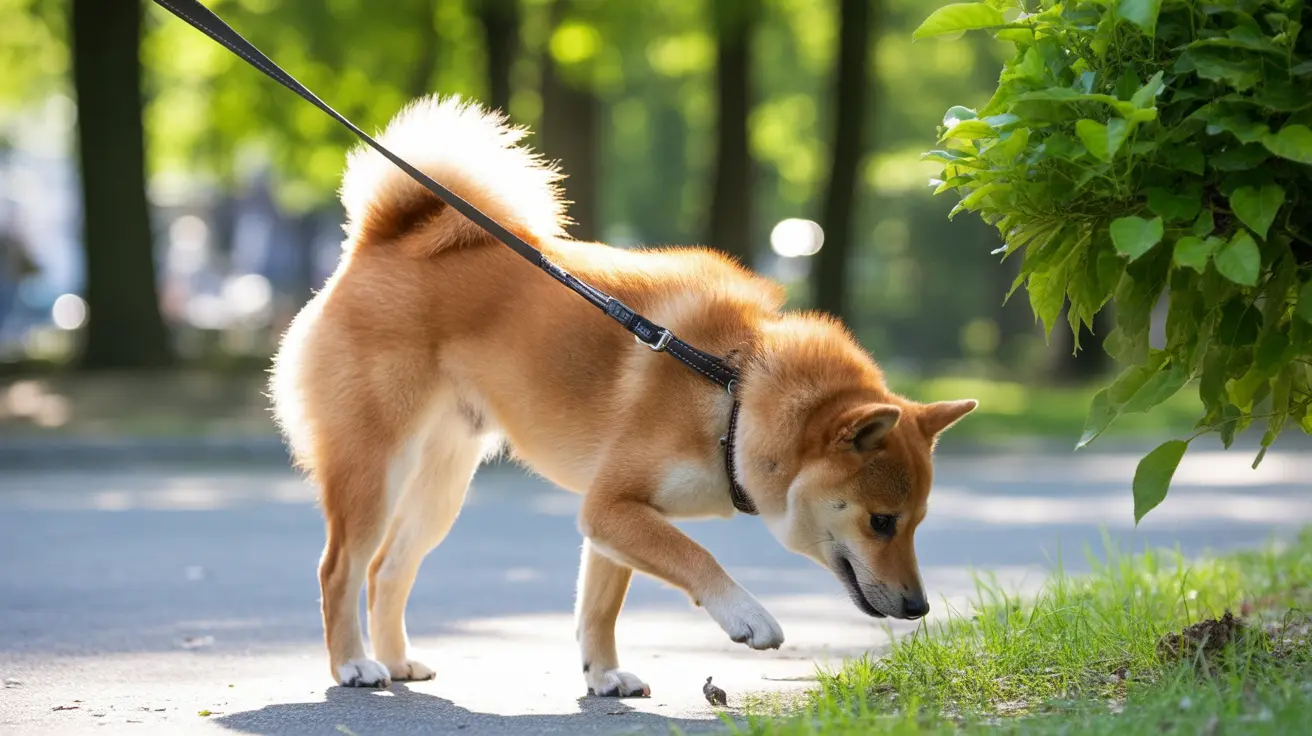If you're struggling with your dog eating other dogs' feces during walks, you're not alone. This behavior, known as coprophagia, is both common and concerning for many pet owners. Understanding why it happens and implementing the right combination of training and management techniques can help you effectively address this unsavory habit.
Understanding Why Dogs Eat Other Dogs' Poop
Dogs may engage in coprophagia for various reasons, including nutritional deficiencies, behavioral issues, or learned habits. Some dogs develop this behavior out of curiosity or boredom, while others might be seeking attention or responding to stress. Medical conditions, including malabsorption or enzyme deficiencies, can also trigger this behavior.
Research shows that up to 16% of dogs regularly engage in coprophagia, with the behavior being more common in multi-dog households. Understanding your dog's specific triggers is crucial for developing an effective prevention strategy.
Essential Training Techniques for Prevention
Teaching the "Leave It" Command
The "leave it" command is your first line of defense against poop eating during walks. Start training in a controlled environment with less tempting items before progressing to outdoor scenarios.
- Begin with treats in your closed fist
- Wait for your dog to stop investigating your hand
- Mark the moment they look away with a "yes" or click
- Reward with a high-value treat from your other hand
- Gradually increase difficulty by placing items on the ground
Positive Reinforcement Strategies
Always reward your dog generously for ignoring feces during walks. Carry premium treats that your dog values more than the unwanted target. Consistent positive reinforcement helps establish new, healthier habits while strengthening your bond with your pet.
Management and Prevention Tips
Leash Control and Supervision
Keep your dog on a shorter leash during walks for better control. This allows you to monitor their behavior more closely and intervene quickly if they show interest in other dogs' waste. Consider using a head halter for additional control with larger dogs.
Environmental Management
Choose walking routes carefully, avoiding areas where other dogs frequently defecate. Clean up after your own dog immediately, and remain vigilant about scanning the environment during walks. Creating a poop-free zone in your yard also helps establish better habits.
Dietary Solutions and Supplements
Ensure your dog receives a high-quality, balanced diet to prevent nutritional deficiencies that might trigger poop eating. Some veterinarians recommend specific supplements designed to make feces less appealing, though these work best when combined with behavioral training.
- Enzyme supplements to aid digestion
- Probiotic supplements for gut health
- Vitamin B complex supplements
- Taste-deterrent products (with veterinary approval)
Frequently Asked Questions
Why does my dog eat other dogs' poop during walks and how can I stop it?
Dogs may eat other dogs' poop due to nutritional deficiencies, behavioral issues, or medical conditions. Stop this behavior through consistent training, proper supervision, and positive reinforcement when they ignore feces during walks.
What training techniques help prevent my dog from eating poop on walks?
The most effective training techniques include teaching a solid "leave it" command, using positive reinforcement, and maintaining consistent leash control. Always reward your dog for ignoring feces during walks.
Are there safe dietary changes or supplements to reduce my dog's poop-eating habit?
Yes, ensuring a high-quality diet and adding specific supplements like probiotics or enzyme supplements can help. Consult your veterinarian for personalized recommendations based on your dog's needs.
How can I manage and supervise my dog during walks to stop poop eating?
Use a shorter leash, maintain vigilant supervision, and choose walking routes carefully. Stay consistent with training commands and always be prepared to redirect your dog's attention with high-value treats.
What health risks does my dog face from eating other dogs' feces and when should I see a vet?
Eating other dogs' feces can expose your dog to parasites, bacteria, and other pathogens. Consult a veterinarian if the behavior persists, your dog shows any illness symptoms, or you suspect underlying health issues.
Final Thoughts
Breaking your dog's habit of eating other dogs' poop requires patience, consistency, and a multi-faceted approach. Combine proper training, management techniques, and appropriate dietary support for the best results. Remember that every dog is different, so be prepared to adjust your strategy based on what works best for your pet.






